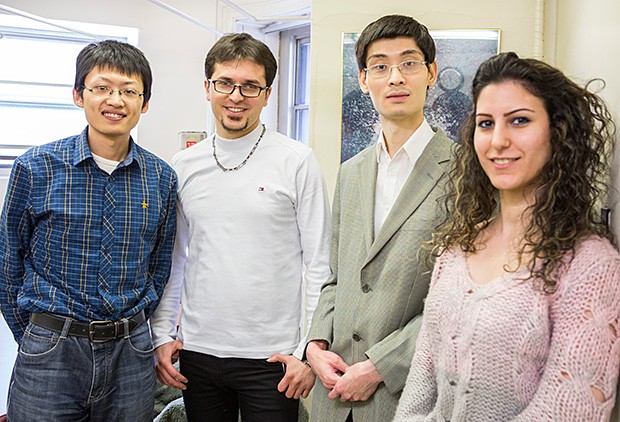A ‘distinct advantage’ for PhD candidates
Every Friday morning, four PhD candidates sit down at the School of Graduate Studies to discuss, debate and dissect the latest theories on learning and cognition. These enthusiasts represent a new academic wave: the first cohort in Concordia’s 15-credit Graduate Certificate in University Teaching.
“I jumped at the opportunity to take part in the new program,” says Chun Chi Mak, who is pursuing a doctorate in chemistry. “I wanted to explore different perspectives on the challenges of teaching and learning in order to further refine my teaching philosophy.”
In order to provide doctoral students with both the theoretical and the practical training required by top-level post-secondary educators, the Certificate places a premium on interdisciplinarity. Participants study materials from a wide variety of specializations, and learn from guest speakers in fields ranging from anthropology to computer science.
The objective is to offer a more global take on teaching.
“Far too often, as academics, we get bogged down in traditional instructional methods specific to our disciplines,” says program director Vivek Venkatesh, associate dean of Academic Programs and Development in the School of Graduate Studies. “One of the main goals of the certificate is to equip our students with a multi-curricular approach to teaching — one that will allow them to succeed in an academic world that is increasingly looking at learning and research across disciplines.”
Mak became passionate about pedagogy while working as a TA during his master’s studies. To him, the advantage of learning about a variety of disciplines is obvious. “I mean, how many chemists take classes where you read and discuss feminist theories on education?”
Putting interdisciplinarity into practice
Once the theory-based seminars are over, the students will take their tools to the classroom.
Each of the program’s participants must design and deliver a course in their field during the 2014-15 academic year. A professor from the relevant department will act as a mentor, working closely with the individual students as they prepare their classes. They will also receive constant support while they teach.
The prospect of creating a course was partly what prompted Jana Abou Ziki, a PhD candidate in the department of mechanical and industrial engineering, to join. But in the end, she says, the program is about more than that.
“It walks us through a well-designed process that allows us to develop our teaching strategy by applying it and reflecting on its outcome, while also receiving feedback from professionals. This experience will give me a distinct advantage when I apply for jobs in academia as I will have evaluated my teaching philosophy and moved it forward.”
Venkatesh is pleased with how the program has unfolded thus far. He hopes that it will grow into a centrepiece of Concordia’s graduate student experience. “What we’re doing here is unique to Quebec, and it’s addressing an important need.”
The key, Venkatesh says, is support from mentors and department chairs. “Their buy-in is critical to the program’s success.”
The Graduate Certificate in University Teaching program is currently accepting applications for the 2014-2015 academic year. Find out more about the Graduate Certificate in University Teaching.
